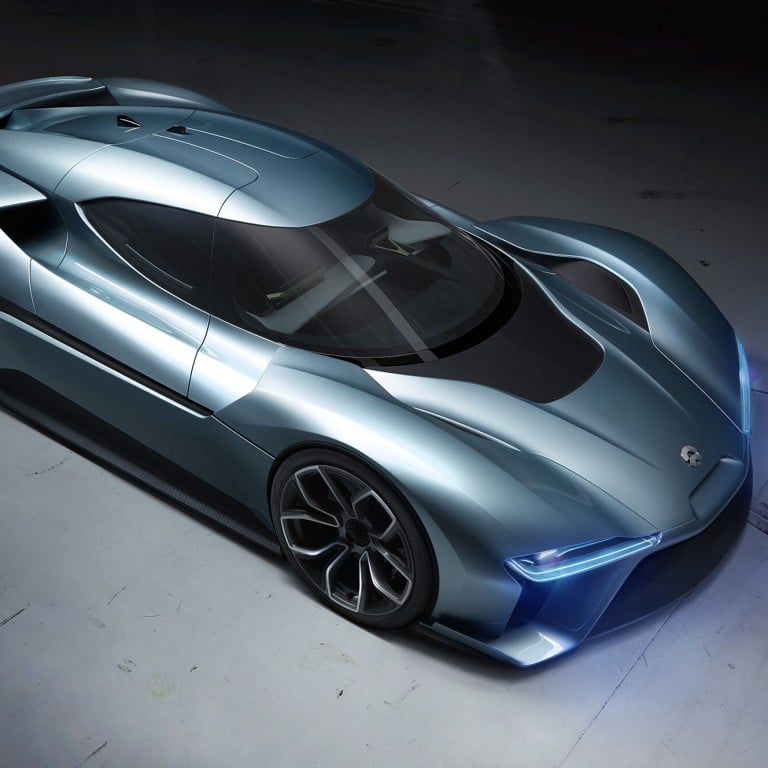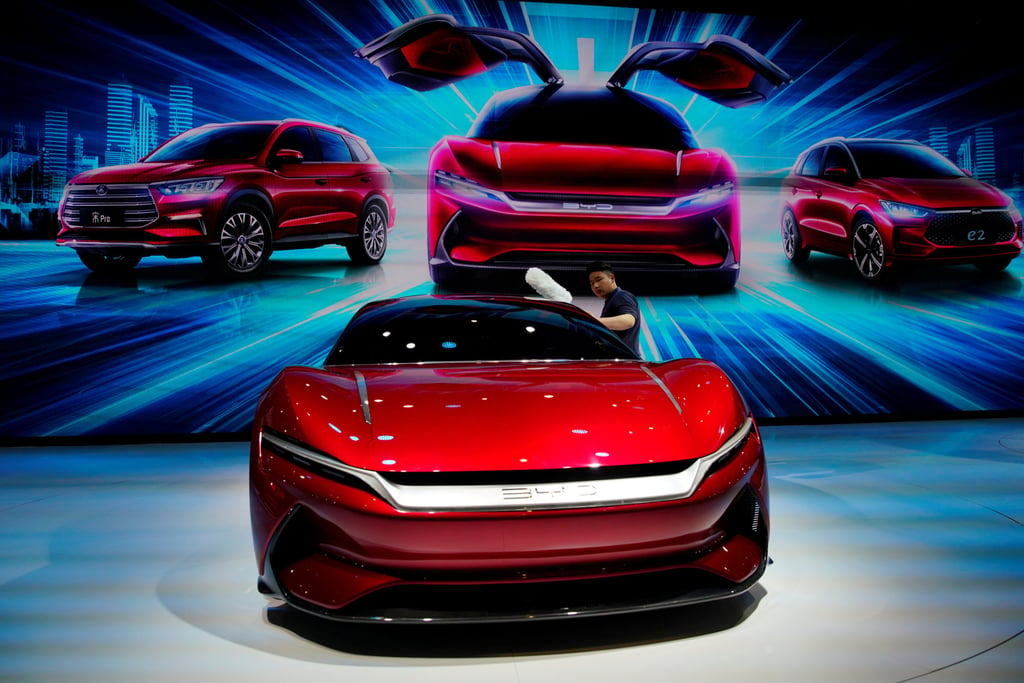Tesla, recharge: can China’s EV brands dethrone Elon Musk? Start-ups Li Auto, Nio and Xpeng are going global with cheaper electric cars for all

- Tesla may be the world’s best-known manufacturer of electric vehicles – but Chinese brands are catching up quick and starting to eye foreign markets
- The ultra-compact Wuling Hongguang Mini EV was China’s second best-selling EV last year, behind the Tesla Model 3, and priced at just US$4,400
Can China produce a car to take on Tesla? Last year saw two models account for 20 per cent of sales for plug-in electric cars, or what China calls new energy vehicles (NEV). The made-in-China Tesla Model 3 went on sale right at the beginning of 2020, and went on to claim 11 per cent over the year. The ultra-compact Wuling Hongguang Mini EV, released in the middle of the year, took second place, with retail prices starting as low as 28,800 yuan (YS$4,400) helping it eclipse Tesla sales in several calendar months.
In a tough market due to Covid-19, sales of NEVs increased but polarisation towards the premium and budget ends led to a squeeze of the middle ground dominated by traditional players such as SAIC, BAIC and BYD, who all saw double-digit decreases in sales. And so the question remains: can Chinese EV producers hit the sweet spot in terms of price and tech to succeed domestically and abroad?

Helped by various incentives such as subsidies and green number plates, which in many cities are much easier to get than plates for conventional cars, in 2020 NEVs made up 6.3 per cent of the car market. However, government targets call for a 25 per cent share by 2025, meaning sales will need to increase considerably.
Until last year a foreign NEV had never taken the yearly top sales spot – the Model 3 was the only car from a non-Chinese brand in the top 10. One of the biggest reasons has been the lack of a local production base, but that is changing. In 2021, Tesla has started selling the locally produced Model Y, and BMW now uses China as it global production base for the iX3. Joint ventures will over the next few years rapidly broaden their offerings: for example, Volkswagen intends to produce multiple electric ID models through its joint ventures.

Currently the main Chinese Tesla competitors are a trio of start-ups – Li Auto, Nio and Xpeng – all of whom have US stock listings. Li’s One achieved the best placing in 2020 at eighth, with sales of 33,186 compared to 139,925 for Tesla’s Model 3. January saw sales growth of over 300 per cent year-on-year for all three companies; 2021 is likely to see one of the start-ups, possibly even two, exceed the 100,000 mark in sales for the first time.
“Tesla enjoys a strong brand image in the minds of Chinese car buyers, like Apple in smartphones. Tesla cars are perceived to be of better quality, better designed, offer a high range, durability and relatively long-lasting when compared to other EV brands,” says Aman Madhok, senior analyst Smart Automotive at Counterpoint Research.

Currently Li, Nio and Xpeng are not fully fledged competitors. Li has only one model, which is a series plug-in hybrid (a petrol engine starts up to drive the electric engine once the battery is exhausted) rather than an all-electric BEV (battery electric vehicle). Nio, although arguably the most similar to Tesla, currently only offers SUVs and mainly higher-end models. While Xpeng does target the more mainstream market, its positioning and price point are below that of Tesla. Thanks, though, to technology such as the Navigation Guided Pilot (autonomous driving capability) released in January, it is rapidly positioning itself as a tech competitor.




